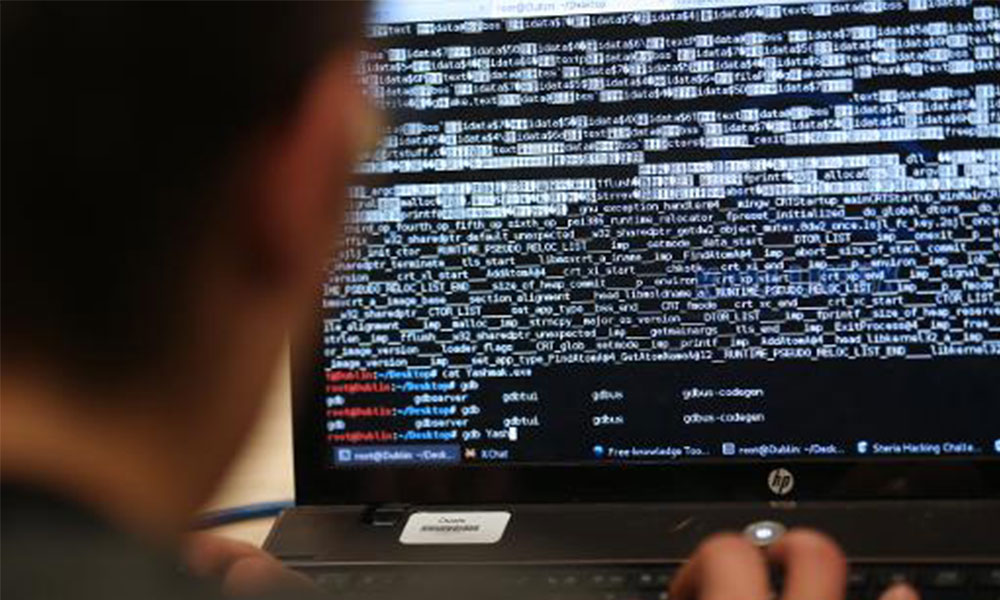LETTER | Be hyper-vigilant with the pandemic of crime
LETTER | The economic recession that we are currently facing due to the coronavirus pandemic has not only contributed towards a rise in unemployment but also fuelling growth in crime.
Although the crime has dropped by 46.7 percent during the conditional movement control order (MCO), experts warn that the number could spike in upcoming weeks, as a massive increase in joblessness caused by Covid-19 will lead to more people becoming desperate and breaking the law.
It does make sense that people tend to commit crimes during desperate times, especially after being laid off to meet their economic needs as they lose their source of income and are facing hunger.
Not to mention the emotional impact that they experienced after being laid off without strong ground during a crisis is very stressful and frustrating which will make them inclined to commit wrongdoings.
What's more, since roadblocks will no longer be held and police will not be around as much as before to monitor the public especially at the popular hotspots during the recovery phase of the MCO, committing such lawbreaking acts become much easier.
According to a study, a recession could not only lead to short-term adverse outcomes on the labour market but can indeed produce a group of people called "career criminals", who earn their income through criminal activities.
In other words, the worsening opportunities in the legal employment sectors have made committing a crime more attractive; and such tendency is expected to have more relevance to property crimes (i.e. motor vehicle thefts) as it allows them to make fast money.
Usually, the stolen vehicles would then be sold to the chop shop, which is an illegal garage that buys stolen cars to disassemble the vehicle and sell their parts for profit.
Apart from property crime, economic theory predicts that the global recession will probably also increase the amount of cybercrime such as scams, phishing and online fraud, given the increased use of cyberspace nowadays.
If we look back at the 2008-2009 Great Recession, the past studies have shown a correlation between unemployment and cybercrime, where fraud on the internet increased by 33 percent at that time.
It looks like the past trend from the 2008-2009 timeframe will repeat in 2020, since we are currently facing almost the same situation – but with a whole new level of cybersecurity threats compared to the last one.
Plus, with the booming unemployed graduates who are gifted in computer skills nowadays, attempting cyberattacks seems possible, what's more when hundreds of tutorial and digital manuals on cybercrime could be gotten from the internet easily.

Recently in the United States, as millions of people around the country scrambled to collect unemployment benefits and disbursements through the Federal Cares Act, the United States Security Service has reported a fraudulent attempt by Nigerian criminals who claim the unemployment benefits using stolen American identities.
The Secret Service warns that hundreds of millions of dollars could be lost to such scams just as states are running out of money to fund unemployment on their own.
Indeed, this is such a cruel act, attacking government programmes, especially during this time, where it could jeopardise other people’s opportunity to receive bits of help and supports.
In England, on the other hand, the Action Fraud organisation has reported a £5 million (RM26.7 million) losses from coronavirus-related fraud since February, with the number of reports totalling more than 2,100.
A customer in their 50s from the north-west of England was reimbursed of £102 after falling victim to a doorstep scam when a fraudster offered to do their shopping but instead withdrew cash from their card without consent.
Simon Blackburn, the chairman of the Local Government Association's safer and stronger communities board said: "People need to be cautious. If something doesn't seem right or sounds too good to be true, don't hesitate to end a phone call, bin a letter, delete an email or shut the door."
How to prevent crimes from happening?
In this digital age, AI-powered crime-fighting tools could become a requirement for individuals, communities and businesses to prevent and detect crimes.
The idea behind this project is that crimes are relatively predictable; we need to make use of past crimes data and use AI (Artificial Intelligence) technology to predict future crime.
This can be done by monitoring any behavioural changes or suspicious acts of a person, so any potential criminal activities can be stopped.
Moreover, crime spots could also be detected beforehand using this technology. For example, a rash of thefts in one area could help predict that similar incidents might happen in the surrounding areas in the future.
Thus, the AI systems can aid police officers to get the right location of areas where they should consider patrolling more heavily.
In a cybersecurity context, AI technology will enable the computer to recognise potential money fraud cases by observing any anomalies in a system with a lot more accuracy than any human can.
The human monitor would then receive an alert for further review – whether to accept or reject this alert, before proceeding to the next action.
Indeed, during this challenging time, identifying suspicious activity before transactions can proceed is cheaper and more effective rather than trying to reverse them once they have taken place.
The writer is a research assistant at EMIR Research, an independent think tank focused on strategic policy recommendations based on rigorous research.
The views expressed here are those of the author/contributor and do not necessarily represent the views of Malaysiakini.
RM12.50 / month
- Unlimited access to award-winning journalism
- Comment and share your opinions on all our articles
- Gift interesting stories to your friends
- Tax deductable
